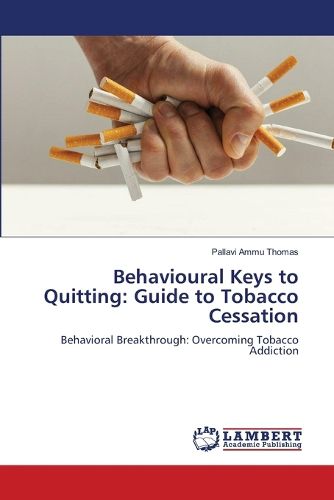Readings Newsletter
Become a Readings Member to make your shopping experience even easier.
Sign in or sign up for free!
You’re not far away from qualifying for FREE standard shipping within Australia
You’ve qualified for FREE standard shipping within Australia
The cart is loading…






Behavioral therapy in tobacco cessation focuses on identifying and changing the behaviors and thoughts that trigger smoking. It helps individuals develop healthier coping mechanisms to resist the urge to smoke. Techniques like cognitive-behavioral therapy (CBT) and motivational interviewing address the psychological aspects of addiction. The goal is to equip individuals with practical skills to manage cravings and maintain a smoke-free lifestyle.Behavioral therapy often involves personalized counseling sessions where individuals explore their smoking habits and set specific goals for quitting. It emphasizes self-monitoring to track progress and identify high-risk situations for relapse. Support and encouragement from therapists are crucial in building confidence and motivation. Additionally, behavioral therapy may incorporate stress management techniques and lifestyle changes to support overall well-being and prevent relapse.
$9.00 standard shipping within Australia
FREE standard shipping within Australia for orders over $100.00
Express & International shipping calculated at checkout
Behavioral therapy in tobacco cessation focuses on identifying and changing the behaviors and thoughts that trigger smoking. It helps individuals develop healthier coping mechanisms to resist the urge to smoke. Techniques like cognitive-behavioral therapy (CBT) and motivational interviewing address the psychological aspects of addiction. The goal is to equip individuals with practical skills to manage cravings and maintain a smoke-free lifestyle.Behavioral therapy often involves personalized counseling sessions where individuals explore their smoking habits and set specific goals for quitting. It emphasizes self-monitoring to track progress and identify high-risk situations for relapse. Support and encouragement from therapists are crucial in building confidence and motivation. Additionally, behavioral therapy may incorporate stress management techniques and lifestyle changes to support overall well-being and prevent relapse.